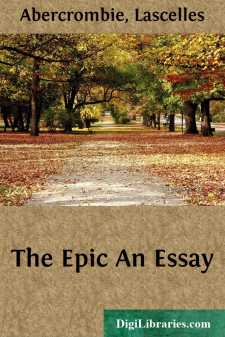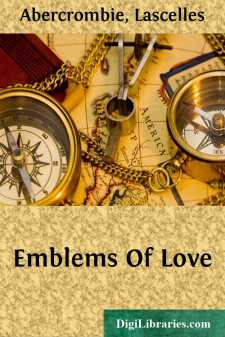Categories
- Antiques & Collectibles 13
- Architecture 36
- Art 48
- Bibles 22
- Biography & Autobiography 813
- Body, Mind & Spirit 142
- Business & Economics 28
- Children's Books 15
- Children's Fiction 12
- Computers 4
- Cooking 94
- Crafts & Hobbies 4
- Drama 346
- Education 46
- Family & Relationships 57
- Fiction 11828
- Games 19
- Gardening 17
- Health & Fitness 34
- History 1377
- House & Home 1
- Humor 147
- Juvenile Fiction 1873
- Juvenile Nonfiction 202
- Language Arts & Disciplines 88
- Law 16
- Literary Collections 686
- Literary Criticism 179
- Mathematics 13
- Medical 41
- Music 40
- Nature 179
- Non-Classifiable 1768
- Performing Arts 7
- Periodicals 1453
- Philosophy 64
- Photography 2
- Poetry 896
- Political Science 203
- Psychology 42
- Reference 154
- Religion 513
- Science 126
- Self-Help 84
- Social Science 81
- Sports & Recreation 34
- Study Aids 3
- Technology & Engineering 59
- Transportation 23
- Travel 463
- True Crime 29
The Epic An Essay
Description:
Excerpt
I.
BEGINNINGSThe invention of epic poetry corresponds with a definite and, in the history of the world, often recurring state of society. That is to say, epic poetry has been invented many times and independently; but, as the needs which prompted the invention have been broadly similar, so the invention itself has been. Most nations have passed through the same sort of chemistry. Before their hot racial elements have been thoroughly compounded, and thence have cooled into the stable convenience of routine which is the material shape of civilization—before this has firmly occurred, there has usually been what is called an "Heroic Age." It is apt to be the hottest and most glowing stage of the process. So much is commonplace. Exactly what causes the racial elements of a nation, with all their varying properties, to flash suddenly (as it seems) into the splendid incandescence of an Heroic Age, and thence to shift again into a comparatively rigid and perhaps comparatively lustreless civilization—this difficult matter has been very nicely investigated of late, and to interesting, though not decided, result. But I may not concern myself with this; nor even with the detailed characteristics, alleged or ascertained, of the Heroic Age of nations. It is enough for the purpose of this book that the name "Heroic Age" is a good one for this stage of the business; it is obviously, and on the whole rightly, descriptive. For the stage displays the first vigorous expression, as the natural thing and without conspicuous restraint, of private individuality. In savagery, thought, sentiment, religion and social organization may be exceedingly complicated, full of the most subtle and strange relationships; but they exist as complete and determined wholes, each part absolutely bound up with the rest. Analysis has never come near them. The savage is blinded to the glaring incongruities of his tribal ideas not so much by habit or reverence; it is simply that the mere possibility of such a thing as analysis has never occurred to him. He thinks, he feels, he lives, all in a whole. Each person is the tribe in little. This may make everyone an astoundingly complex character; but it makes strong individuality impossible in savagery, since everyone accepts the same elaborate unanalysed whole of tribal existence. That existence, indeed, would find in the assertion of private individuality a serious danger; and tribal organization guards against this so efficiently that it is doubtless impossible, so long as there is no interruption from outside. In some obscure manner, however, savage existence has been constantly interrupted; and it seems as if the long-repressed forces of individuality then burst out into exaggerated vehemence; for the result (if it is not slavery) is, that a people passes from its savage to its heroic age, on its way to some permanence of civilization. It must always have taken a good deal to break up the rigidity of savage society. It might be the shock of enforced mixture with a totally alien race, the two kinds of blood, full of independent vigour, compelled to flow together;[] or it might be the migration, due to economic stress, from one tract of country to which the tribal existence was perfectly adapted to another for which it was quite unsuited, with the added necessity of conquering the peoples found in possession....



